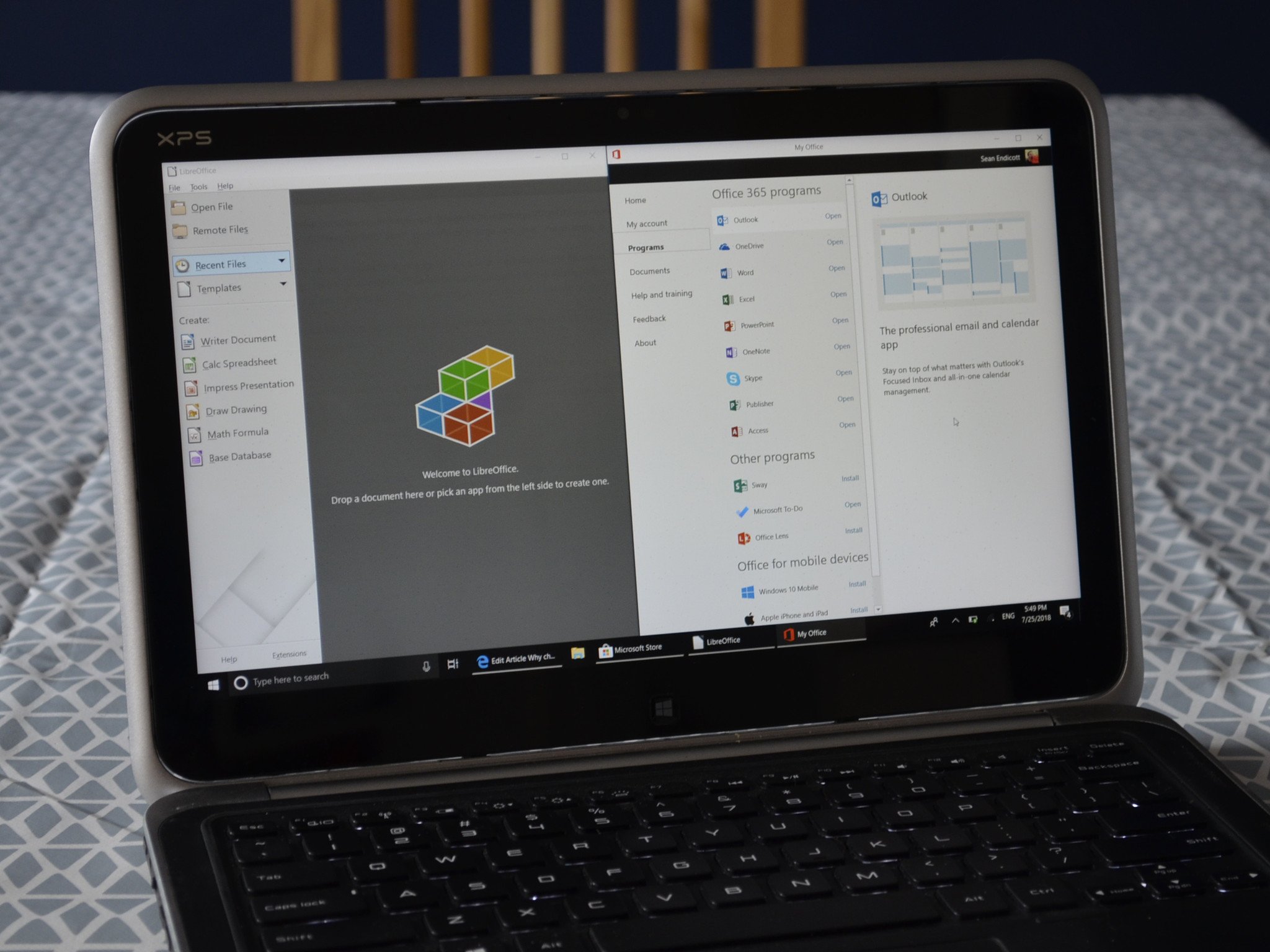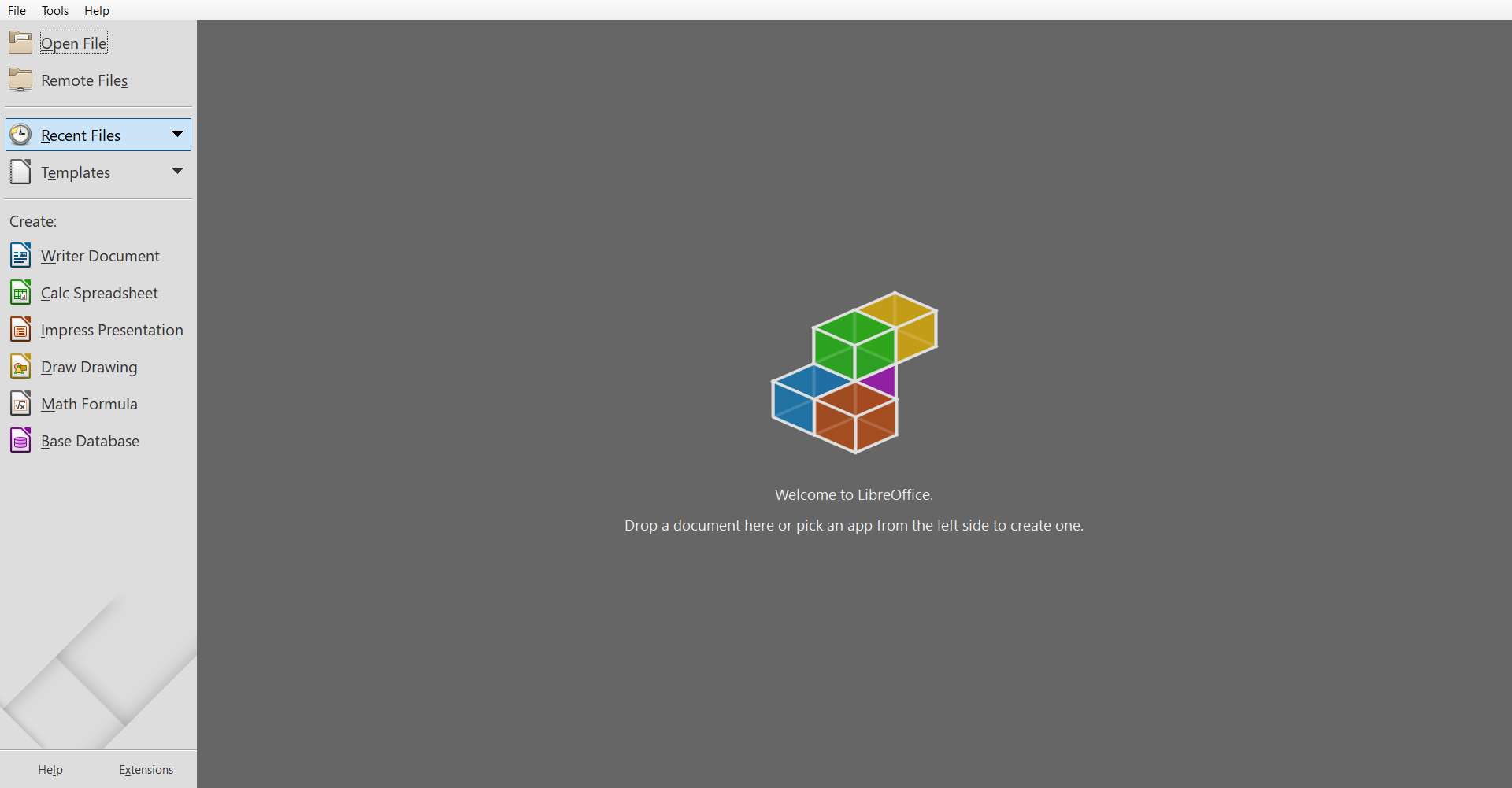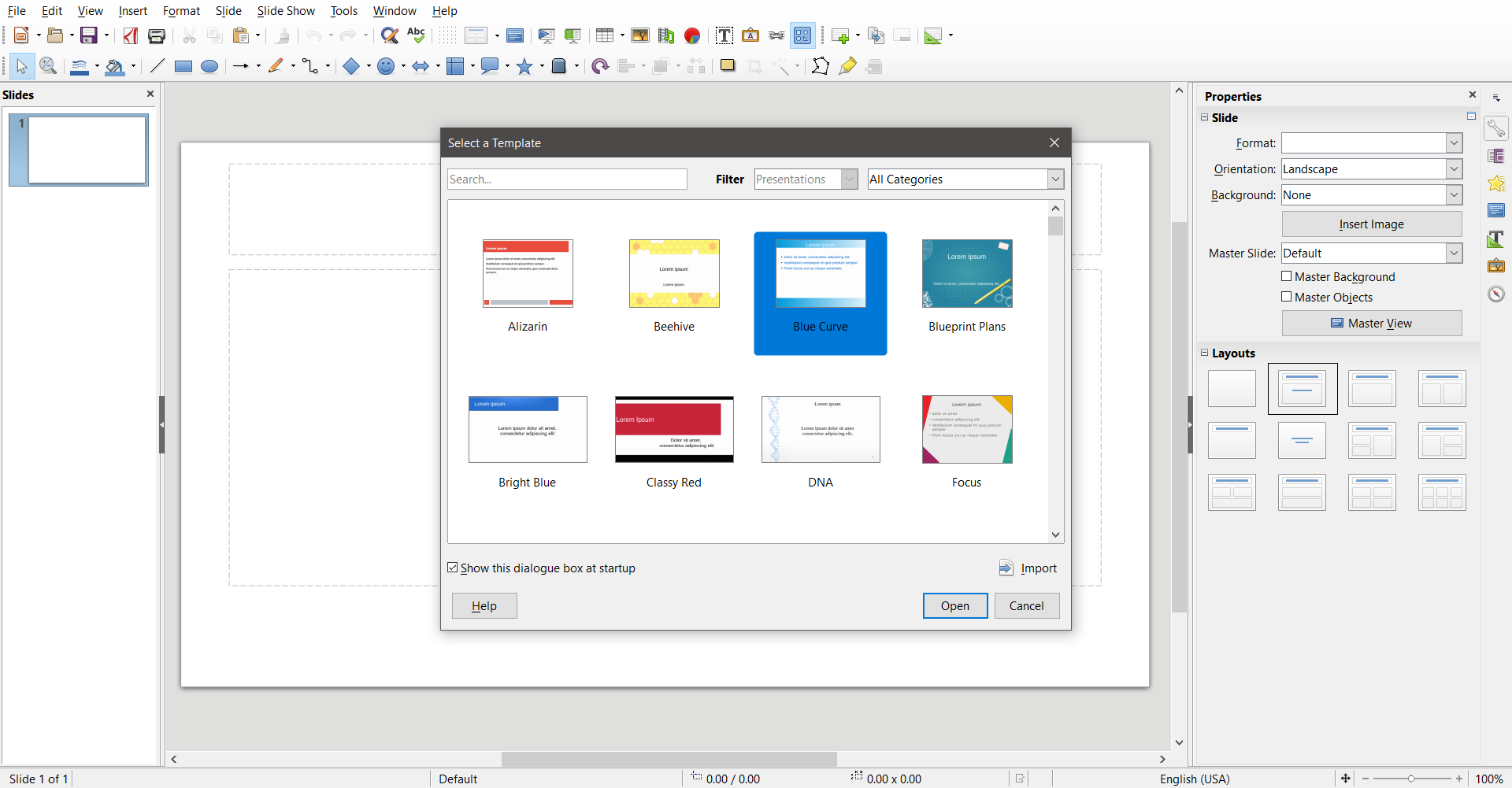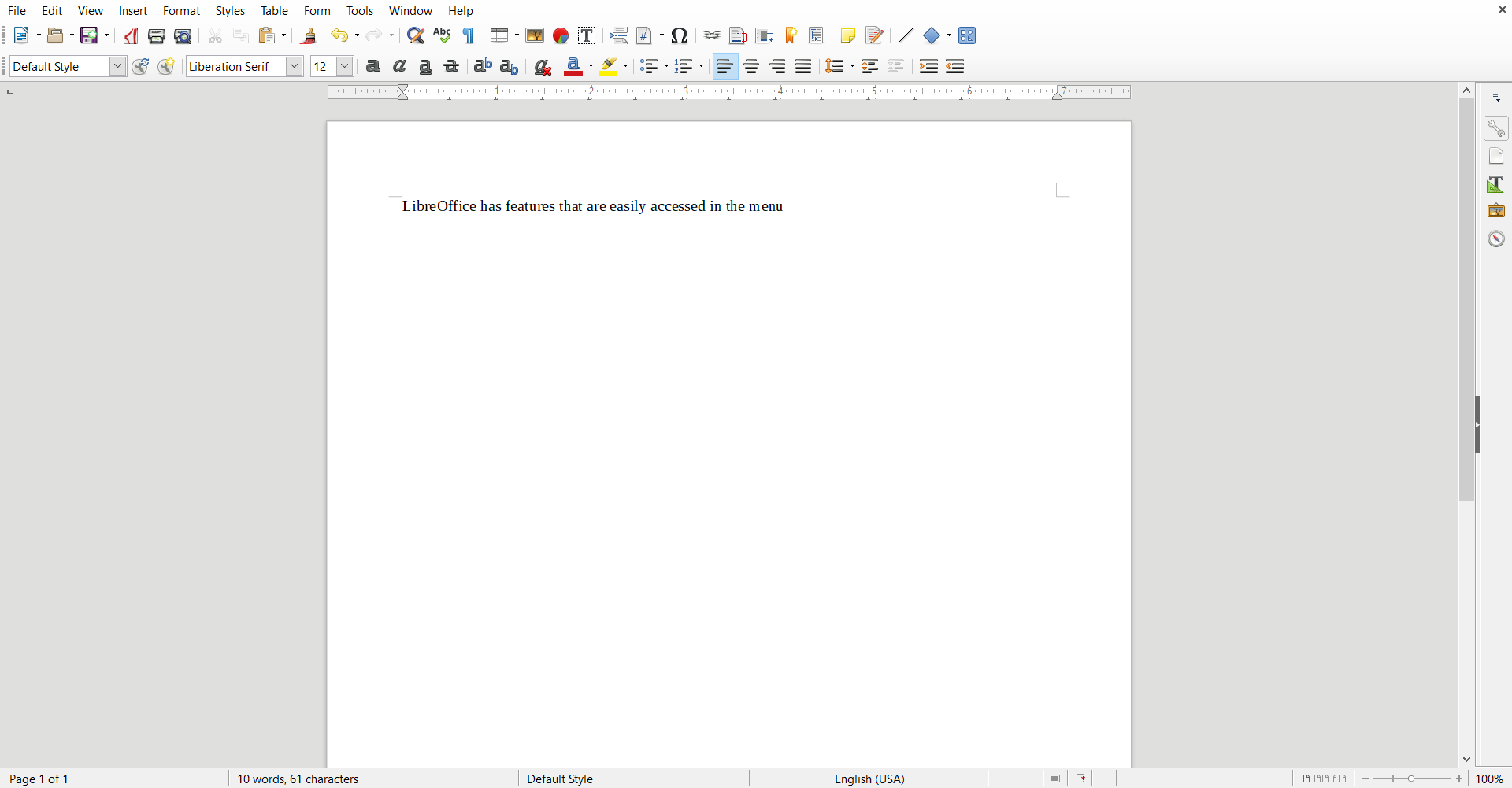Why you should switch from Microsoft Office to LibreOffice (and why you shouldn't)
LibreOffice is a powerful and free alternative to Microsoft Office. But should you make the switch?

All the latest news, reviews, and guides for Windows and Xbox diehards.
You are now subscribed
Your newsletter sign-up was successful
LibreOffice's 5.1 update added support for Windows 10. An unofficial version of LibreOffice was recently uploaded to the Microsoft Store, but now doesn't show up if searched directly in the store. It's still available via LibreOffice's site, though.
While the version of LibreOffice that was available through the Microsoft Store isn't official, it's a quality software suite that begs the question, Is it worth switching from Microsoft Office?
I've used Microsoft Office since Windows 95. But I decided to take a look at LibreOffice after it arrived in the Microsoft Store. It's impressed me, though it's viability as an office suite depends largely on your setup.
Here are some reasons why you should choose LibreOffice over Microsoft Office, and some reasons why you shouldn't.
LibreOffice is available for free on Windows 10, Mac, and Linux through Libre Office's website.
All the latest news, reviews, and guides for Windows and Xbox diehards.
Reason to switch: Value

The first thing that catches the eye about LibreOffice is the price tag, or more specifically the lack of one. LibreOffice originally forked off of OpenOffice and has been regularly maintained and developed over the years. It's one of the best free office suites of applications around and has programs for word processing, spreadsheets, presentations, and more. It is a versatile and powerful set of programs, though it's worth noting that it emulates the older core set of apps from Microsoft Office and doesn't have equivalents to newer programs like OneNote.
While there are many word processors and cheap or free programs that try to deliver a full office setup, Libre Office is one of the most comprehensive. Its wide range of apps tackles the vast majority of office-related workflows. And it does all of this for free.
It supports open formats that allow you to use documents from other programs so you don't have to isolate yourself or your workflow into a Libre Office world.
The value of LibreOffice is truly impressive. It's practically an advertisement for the open source community because of how great of an app you can legally get for free.
Reason to switch: Dedicated developers

While LibreOffice is free, it's not some half-hearted project. It's regularly maintained and updated to support the latest versions of Windows 10. The suite can also be expanded with extensions to add more power and versatility.
While that might not seem like a big deal, some apps that are built to replicate or directly compete with big names fall away and become abandonware. LibreOffice released updates in the last few months to both its "Still" and "Fresh" branches. Because of this, you don't need to worry about LibreOffice falling away. All indicators show that it is alive and well and won't go anywhere anytime soon. Even if it did, you wouldn't have to worry because your documents would be in open formats.
Reasons NOT to switch: Cloud limitations

One of the biggest areas these two suites diverge is in how they approach online and cross-platform workflows. Microsoft invests heavily in the cloud to let you open and save documents anywhere you'd like. It also focuses on having apps on a variety of hardware, ranging from computers to tablets and phones. LibreOffice is available on Windows, macOS, and Linux, but iOS and Android are limited to viewing files only unless you turn on experimental features.
If you need to save something on one device and jump to another and continue editing, you'll be better served by Microsoft Office. You can do online editing with things such as Collabora and ownCloud, but that's more complicated to set up than just signing into your Microsoft account. Microsoft Office also handles collaboration from multiple editors better than LibreOffice.
Much like the rest of this comparison, how much this affects you will vary. I use a personal PC, work MacBook, work iPad, and personal Android phone. I use Office Online often and use two different OneDrive accounts for work and personal use. So, for me, these features are essential, and I could never switch away from Microsoft Office. But you could have a completely different workflow that would be great for you centered on using LibreOffice on select devices and saving them onto a cloud like Dropbox.
So should you switch from Microsoft Office to LibreOffice?

Deciding to switch to LibreOffice over Microsoft Office is largely dependent on your specific workflow. While LibreOffice obviously is a better value because you're getting something for free, that isn't a factor to someone who already is happy to pay for Office 365 for things like OneDrive storage or someone that gets Office 365 through their workplace or school.
Comparing the feature sets of the two suites is more complicated. It isn't as simple as saying that one is better. If you scroll through this page comparing the feature sets you'll see that the suites alternate in terms of which is better from section to section. For example, LibreOffice lets you insert more items such as vector graphics and FLAC audio, but Microsoft Office has better touch support and better cross-platform collaboration features. My advice in terms of features it to browse through each suite and see which fits your personal needs best.
LibreOffice is impressive, and because it's free you can try it out while still paying for Microsoft Office. My advice is that if you're interested, give it a try while keeping your Office 365 subscription and then make a more permanent decision. Ultimately, LibreOffice could save you some significant cash.

Sean Endicott is a news writer and apps editor for Windows Central with 11+ years of experience. A Nottingham Trent journalism graduate, Sean has covered the industry’s arc from the Lumia era to the launch of Windows 11 and generative AI. Having started at Thrifter, he uses his expertise in price tracking to help readers find genuine hardware value.
Beyond tech news, Sean is a UK sports media pioneer. In 2017, he became one of the first to stream via smartphone and is an expert in AP Capture systems. A tech-forward coach, he was named 2024 BAFA Youth Coach of the Year. He is focused on using technology—from AI to Clipchamp—to gain a practical edge.
